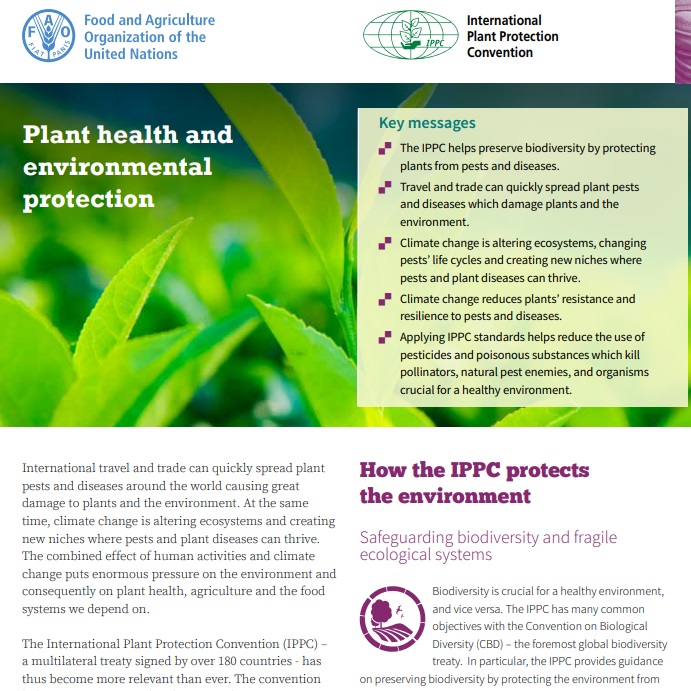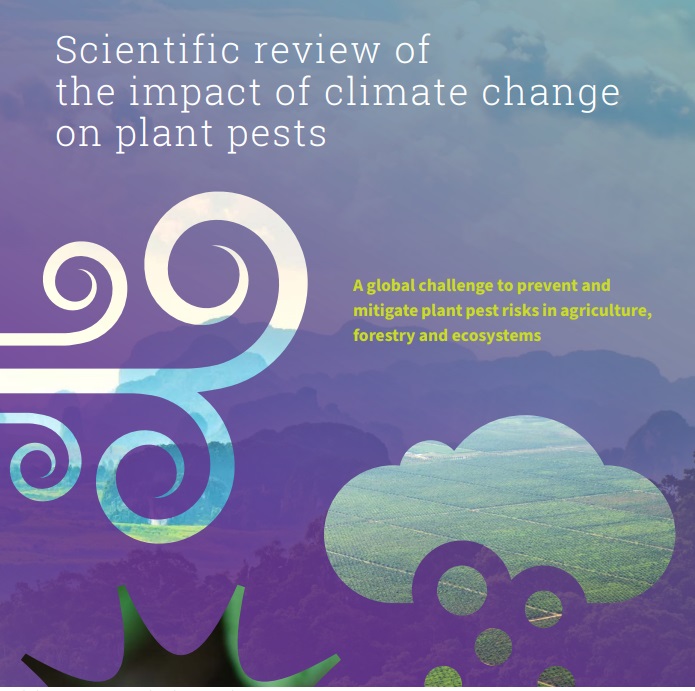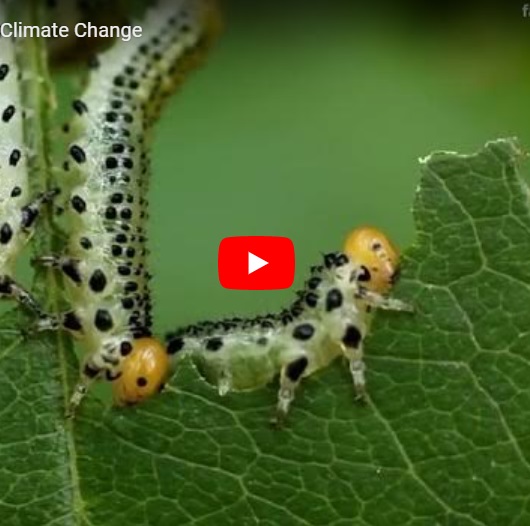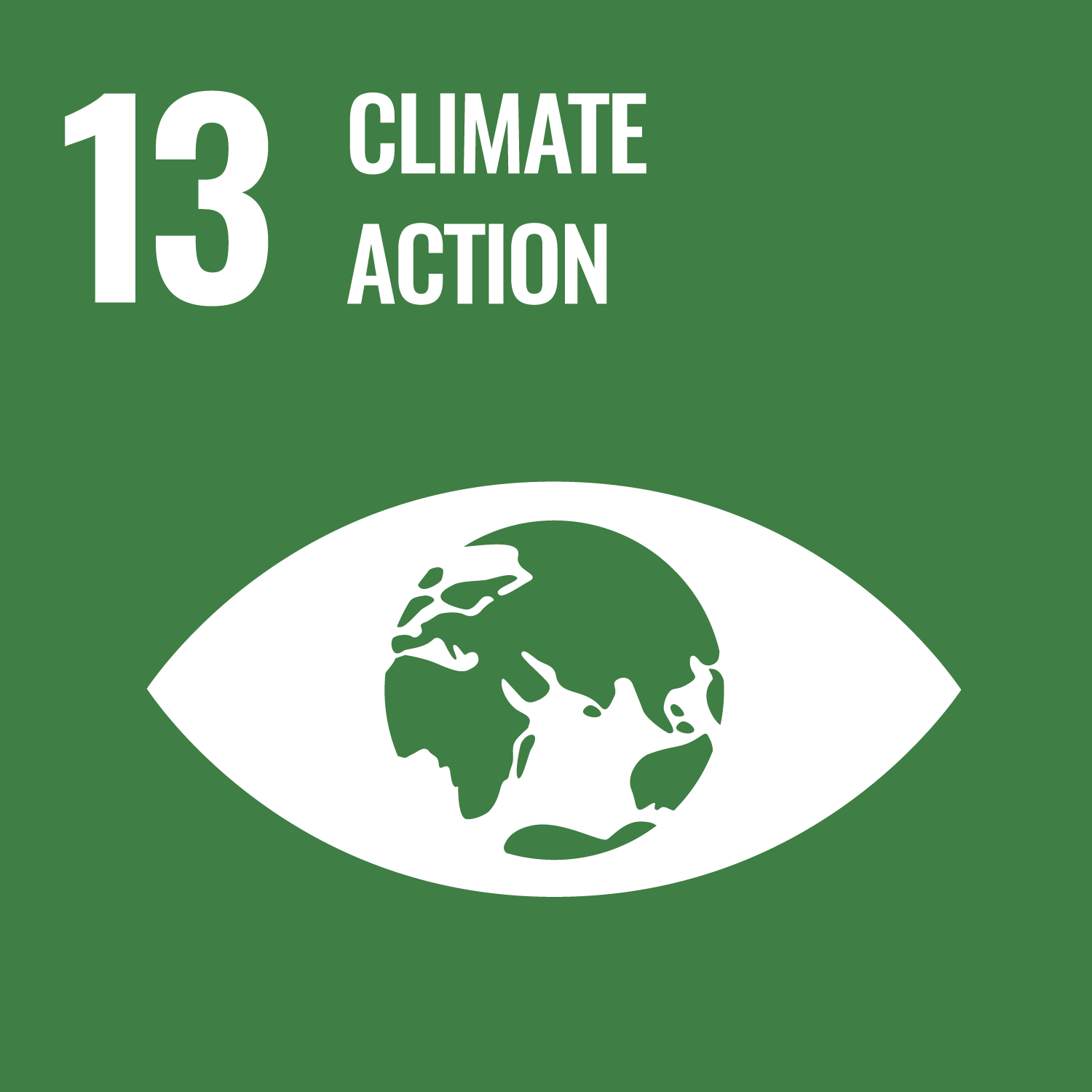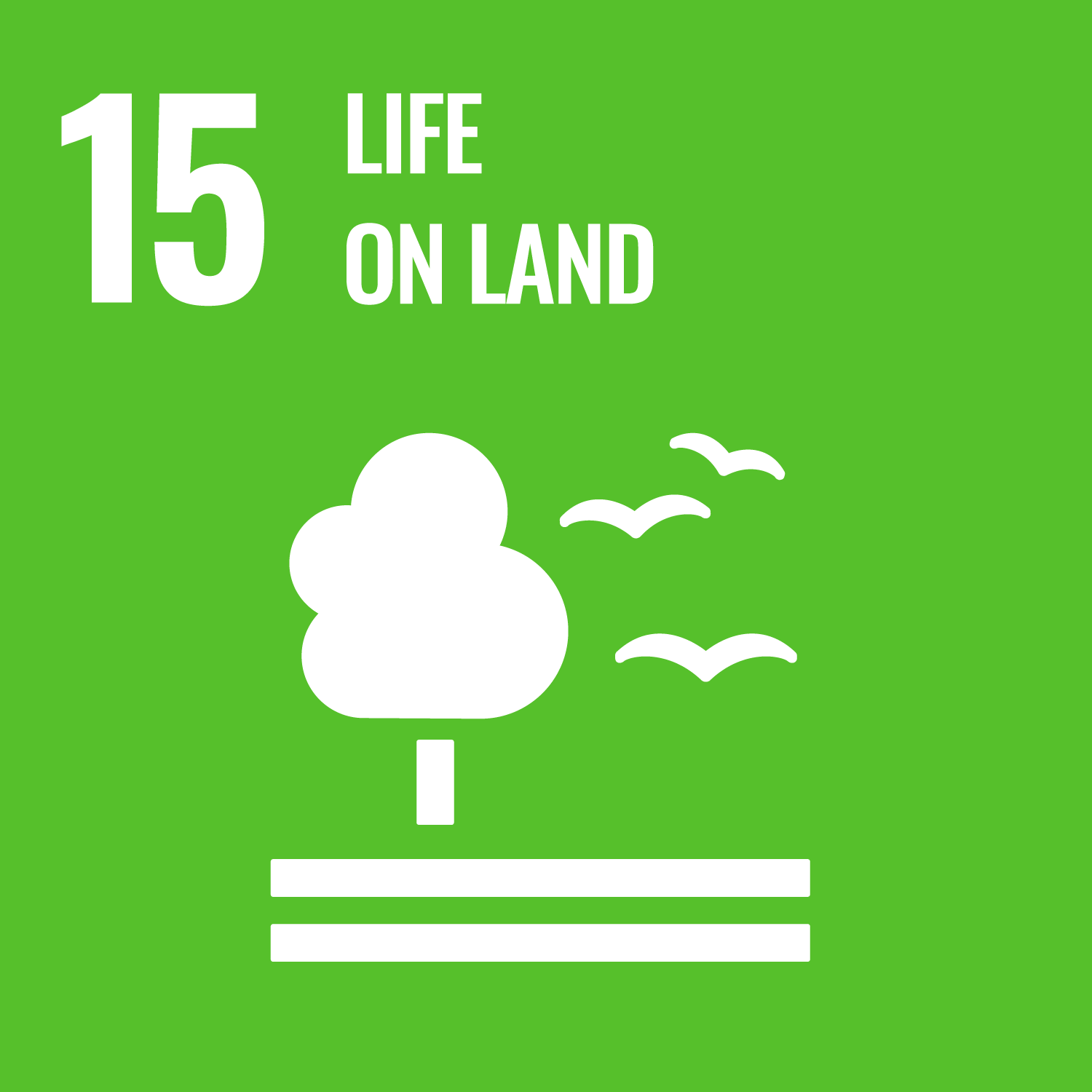Plant Health & Environmental Protection
Key Facts
- Pests cause about USD 100 billions of annual environmental losses in the US, the UK, Australia, South Africa, India, and Brazil combined.
- Invasive alien species are key drivers of biodiversity loss.
- Invasive alien species destroy biodiversity and ecosystems, costing the global economy in excess of USD 423 billion annually in 2019. This cost quadrupled every decade since 1970
- With the growing international trade, it is now easier for pests to hitchhike around the world, damaging ecosystems and the environment in the process.
The IPPC helps countries to improve their collaboration and technical ability to apply standards to prevent the introduction and spread of pests that destroy the environment and biodiversity.
In a world where human activities and climate change are putting immense pressure on the environment and threatening the gains made towards ensuring plant health, the IPPC promotes sustainable pest risk mitigation options, phytosanitary treatments and procedures that protect the environment and contribute to better human, animal and plant health.
Surveillance, reporting, pest risk analysis and management are essential in plant protection to prevent harmful pests, especially as a result of climate change. The International Standards for Phytosanitary Measures (ISPMs) that the IPPC adopts have a significant role thus far. ISPM 6 (Surveillance), for instance, describes the requirements for national plant protection organizations to set up surveillance systems and provides a technical basis for many phytosanitary measures against pests detrimental to the environment and biodiversity.


